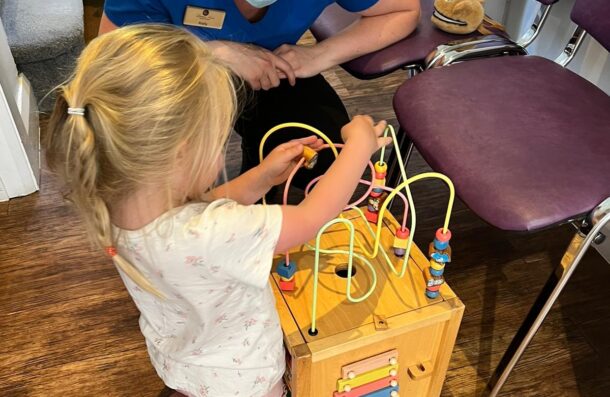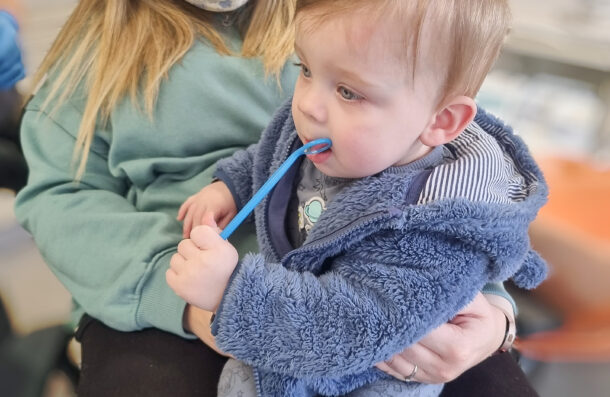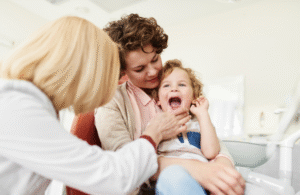Children's Dentistry
- Home
- /
- Treatments
- /
- General Dentistry
- /
- Children's Dentistry
When should my child start going to the dentist?
We recommend that your child first sees a dentist and has their first dental check-up from the age of six months as this is when the first tooth usually appears, and certainly by the age of one when most of your baby’s front teeth are present. This follows the guidance of the British Society of Paediatric Dentistry. We are also on hand for dietary advice (especially on the intake of sugars) and proper oral care recommendations.
The journey to a life of healthy teeth and gums starts even before your child requires dental care.


At our clinic, we prioritize the significance of Children’s Dentistry, especially during their first appointment. This initial visit is crucial in creating a positive and enjoyable experience for your child, ensuring they avoid developing dental phobias. This appointment allows an opportunity for you and your child to meet our dental team, and we hope your child feels at ease while sitting in the dental chair for an examination. In the event that your child is feeling nervous, please do not worry as we are experienced in helping children feel comfortable and happy during their visit.
Our approach is gentle and compassionate, and we have numerous techniques to ensure that a visit to the dentist is a pleasant one.
This visit is also an opportunity for you to check what sort of toothbrush and toothpaste is right for your child and to get advice on food and drink. We also offer fluoride varnish so that when your child is a bit older, he or she can be given a protective varnish for their back teeth which helps to prevent decay. The NHS Change4Life website has tips and ideas for cutting down on sugary foods and drinks.
Our aim is to ensure that your child’s appointments are a positive experience that they can look forward to. Good oral health is important for your child’s confidence and can prevent future problems.
Our dental clinic has one trained Oral Health Educator, Rachel, one of our dental nurses working alongside our dentists, hygienists, and therapists. She can provide visual demonstrations to support the advice given by our dental team, offer helpful dietary recommendations for you and your child’s overall health, and share her expertise with schools and nurseries.
Did you know that: baby teeth are just as susceptible to cavities as adult teeth? You should start brushing your child’s teeth twice a day as soon as they emerge. Use a very thin film of high fluoride toothpaste (no less than 1,000 ppm / parts per million). The fluoride helps prevent tooth decay by protecting the tooth against sugars and bacteria in the mouth.
Your child should spit out any excess toothpaste. And we don’t encourage rinsing as the excess fluoride can continue to protect their teeth
It is essential that you look after baby teeth, they function as “placeholders” for your child’s permanent teeth. If baby teeth are lost too early it can cause adult teeth to grow wrongly into the empty space. This can make it difficult for other teeth to find room later. Poor dental care can lead to tooth decay, gum disease, and worn tooth surfaces.
The age at which treatment may be undertaken varies depending on the needs of your child, Generally, Orthodontic treatment is carried out once all the adult teeth have emerged, however in certain cases early intervention can reduce or even avoid future orthodontic treatment. As a rule, we recommend that around the age of 8 is an appropriate time for your child to be assessed by a specialist orthodontist.
Check out our team on our “About us” page
